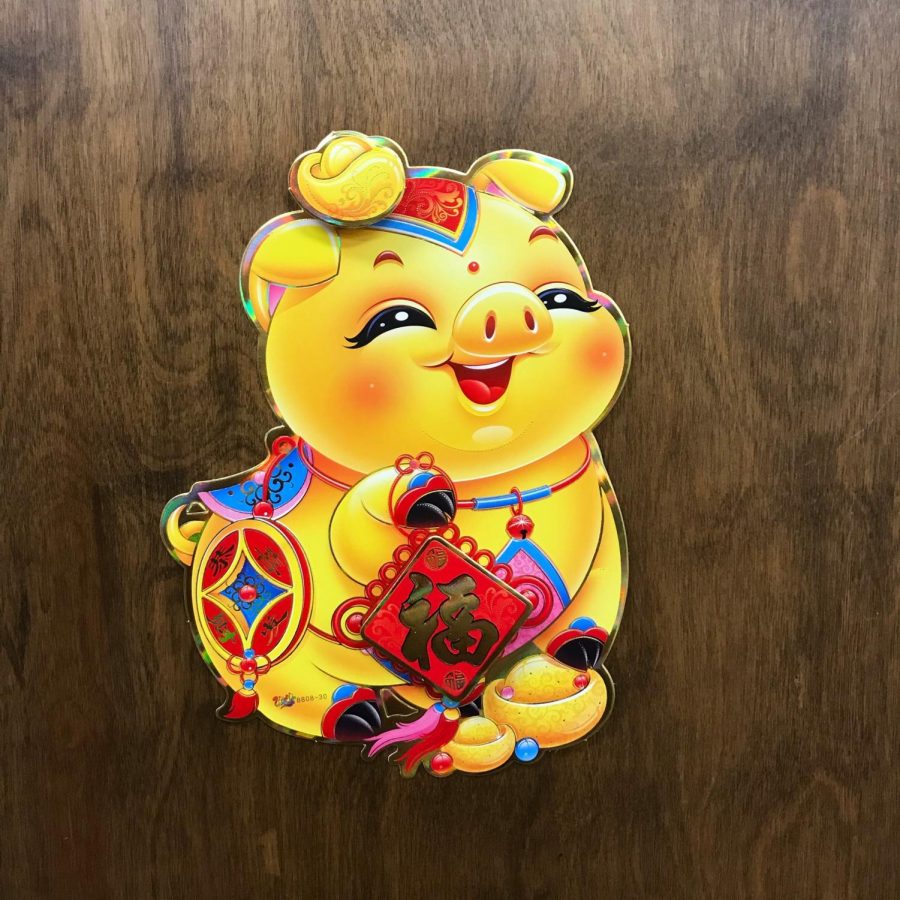Chinese New Year, Chinese New You
Two Chinese international students here at Delta State University, Anna Ma and Debbie Liu, bring some of their favorite Chinese New Year traditions to campus.
Kicking off the Year of the Pig, the Chinese New Year begins February 5, 2019. This 15-day celebration, also known as the Spring Festival, is the largest holiday celebrated in the Chinese culture. The Baptist Student Union brought some of the holiday’s well-known traditions to to Delta State’s campus.
Sometimes called the Lunar New Year because it aligns with the Lunar Calendar, the Chinese New Year marks the end of the coldest days in China, welcoming spring and its new beginnings.
While it originally started as a ceremony to pray to the gods and ancestors for a blessed harvest, the Chinese New Year is now a time for families to come together, and celebrate the new year through many exciting traditions. Because of its great significance in the Chinese culture, Chinese people from all over the world travel home to China to celebrate the Spring Festival with their families.
Two Chinese international students here at Delta State University, Anna Ma and Debbie Liu, bring some of their favorite Chinese New Year traditions to campus. Ma is a junior accounting major and Liu is working toward her MBA.
Dumplings are the first tradition Ma and Liu look forward to. According to them, during the Chinese New Year, families gather around to make dumplings together and then serve them during a big meal for the whole family. This meal is usually followed by watching CCTV’s Spring Festival Gala Evening, a tradition similar to Americans watching the Macy’s Thanksgiving Day Parade broadcast on Thanksgiving. Families also watch fireworks to celebrate the new year, though they have been banned in some areas of China due to such extensive air pollution.
Before the Chinese New Year even begins, the whole house is cleaned because it is believed to be bad luck to clean during the Spring Festival. Some people, such as Ma, also believe that is bad luck to get your hair cut during the new year, and get a fresh cut days before it starts.
Ma and Liu also describe how elaborately decorated the homes are during this 15-day celebration. Homes are completely decorated in the color red. Traditional, red Chinese lanterns and paper are hung from the walls and ceiling, and the Spring Festival scroll is hung on the entrance door.
Of all the Chinese New Year traditions, Ma and Liu agreed that the tradition of the red envelopes is their favorite. Every year during the Spring Festival, elders in the family place money in red envelopes or packets and give them to the children in the family as a sign of good fortune and the passing of blessings between generations.
According to Liu, it is important for Americans to learn about the Spring Festival and its traditions because “It is a better way for Western people to learn about Eastern culture and to experience a culture different from their own.”
On Monday, February 4, the Baptist Student Union (BSU) associated with Delta State (DSU) held a Chinese New Year celebration. The BSU building was decorated with traditional, red Chinese lanterns and happy depictions of golden pigs. Two Chinese international students spent the afternoon in the kitchen, cooking up traditional Chinese dishes, such as Kung Pao chicken and black pepper beef, to share with attending DSU students.
When asked why the BSU wanted to host a Chinese New Year celebration, Josh Warren, the associate director of the BSU, claimed, “We wanted to expose our students from the United States to other cultures and traditions and to provide opportunities for our Chinese students to teach us about their culture, food, etc. We want our ministry to be reflective of the student population at Delta State. In part, that means providing our students with as many opportunities as possible to connect with each other in culturally diverse environments.”
The Chinese New Year offers a unique celebration of the rich traditions of Eastern culture.

Carson Wiseman is a sophomore here at Delta State University from Olive Branch, Miss., who is currently majoring in English Education and minoring in psychology....



